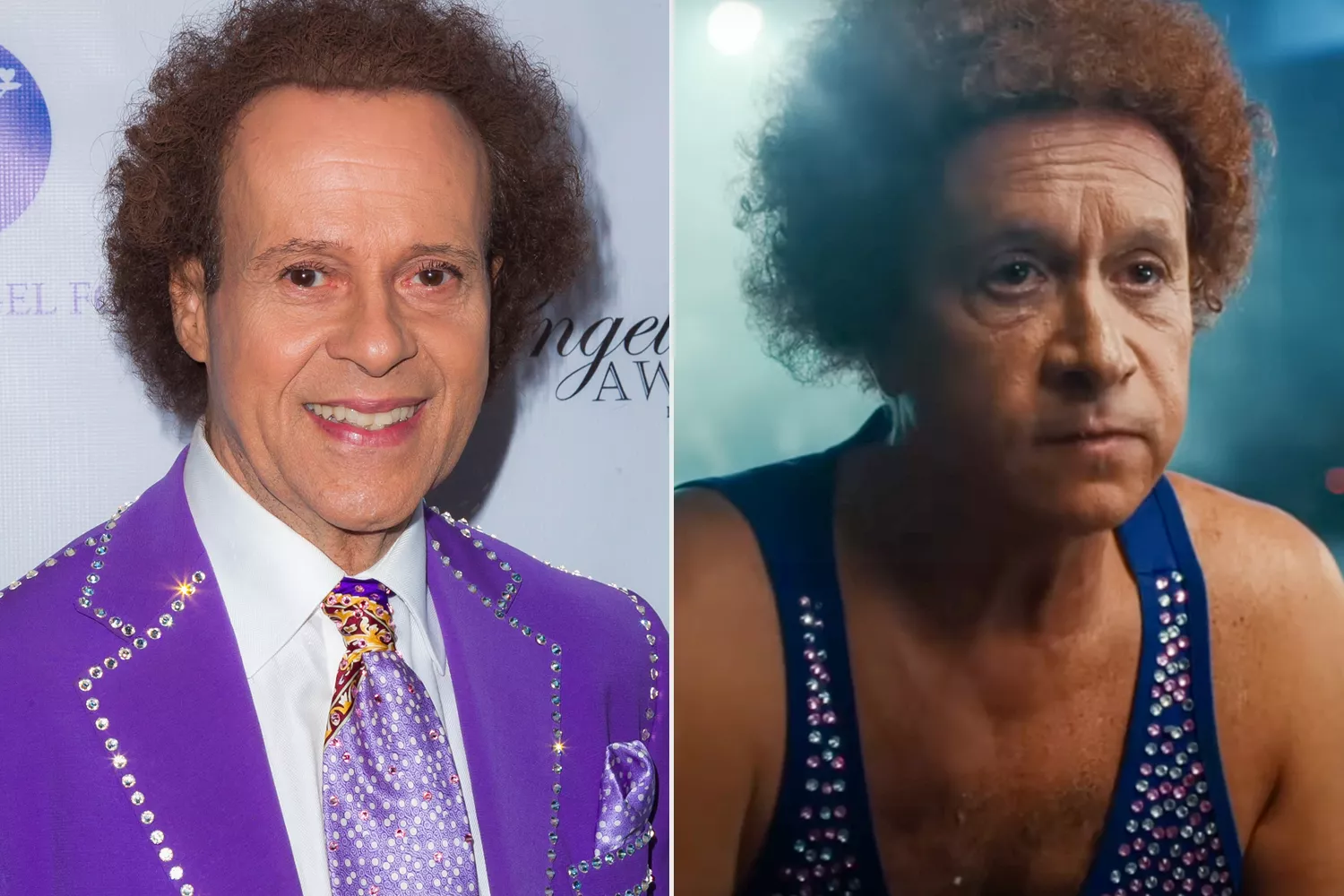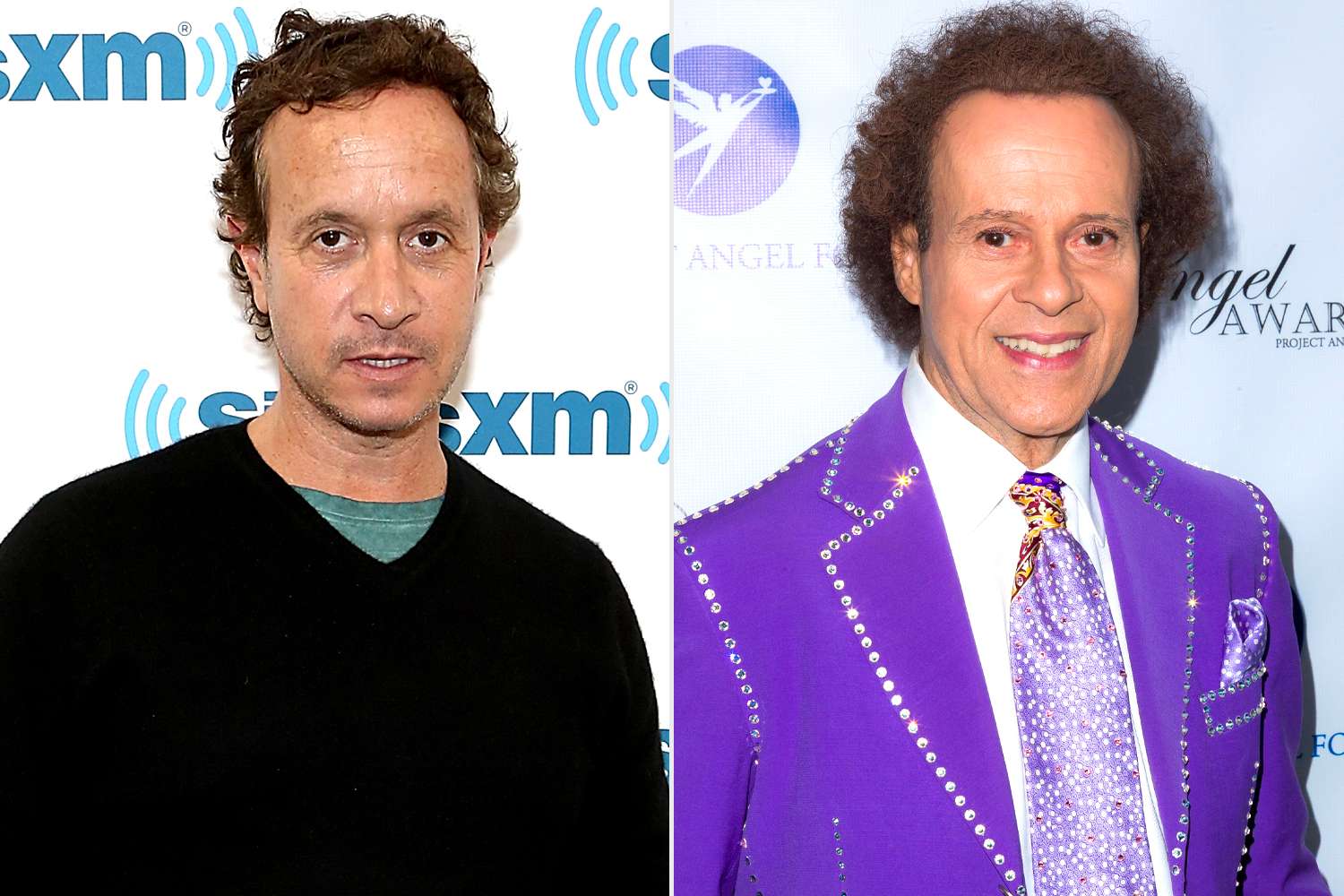In the curious world of entertainment, where stories intertwine and narratives take unexpected turns, the recent revelation of a potential Pauly Shore biopic portraying Richard Simmons has stirred a whirlwind of reactions. With Shore donning the persona of the iconic fitness personality in the short film “The Court Jester,” and talks of a feature-length adaptation looming, Simmons himself has emerged from the shadows to address the buzz surrounding the project. Let’s explore with us!

Taking to Facebook, Simmons penned a candid response, clarifying his stance on the purported biopic. “Hi Everybody!” he began, “You may have heard they may be doing a movie about me with Pauly Shore. I have never given my permission for this movie. So don’t believe everything you read.”
Simmons’ words echoed with a tone of reservation, hinting at his detachment from the unfolding narrative. “I no longer have a manager, and I no longer have a publicist,” he explained. “I just try to live a quiet life and be peaceful. Thank you for all your love and support.”
The absence of Simmons’ endorsement for the project adds an intriguing layer to the unfolding tale. Despite Shore’s portrayal and the apparent interest from Warner Bros.’ subsidiary, The Wolper Organization, Simmons’ reluctance to be associated with the endeavor casts a shadow of uncertainty over its future trajectory.
In a response from The Wolper Organization, they expressed both admiration for Simmons’ privacy and their intention to honor his legacy. “While we would love to have [Simmons] involved, we respect his desire for privacy,” they stated, emphasizing their commitment to crafting a narrative that pays tribute to Simmons’ transformative influence on millions.

Shore, on his part, shared insights into his outreach attempts to Simmons, highlighting his admiration for the fitness guru. “His people responded and they said that he loves me and he loves my mom [the late Mitzi Shore] and the [Comedy] Store and all that stuff,” Shore revealed. “But at this time he just wants to lay low and not really be involved.”
Despite Simmons’ reservations, Shore remains optimistic about Simmons eventually embracing the project. “My hope is that he sees that it looks good, it feels good, it’s right,” Shore expressed. “And then he might just say, f— it at some point — ‘I’m down. I’ll help you guys, I’ll be part of it, and I’ll hold your hand.'”
As “The Court Jester” premieres at the Sundance Film Festival, Simmons’ absence from the limelight echoes louder than ever. The unfolding drama surrounding the biopic serves as a reminder of the complexities that underpin the world of filmmaking and celebrity portrayal.
Simmons’ message, veiled in a shroud of privacy, leaves room for speculation and contemplation. As the narrative unfolds, the world eagerly awaits Simmons’ next move, pondering whether the enigmatic fitness icon will ever step into the spotlight or choose to remain in the shadows, forever an enigma in the annals of pop culture history.
The intersection of celebrity and artistic interpretation has long been a subject of fascination in the entertainment industry. When real-life figures become subjects of biographical films or portrayals, it raises questions about consent, representation, and the boundaries of creative license. In the case of Richard Simmons and the prospective Pauly Shore biopic, these questions are brought to the forefront, sparking a dialogue about the ethics of storytelling and the responsibilities of filmmakers.
One of the central issues at hand is the matter of consent. While biographical films often draw inspiration from real events and individuals, obtaining the subject’s permission or blessing can be a contentious issue. In Simmons’ case, his assertion that he never gave his approval for the biopic underscores the importance of respecting an individual’s agency over their own life story. Without Simmons’ consent, the project risks being perceived as exploitative or invasive, potentially tarnishing the portrayal of his legacy.
Furthermore, the portrayal of real-life figures in biographical films raises questions about authenticity and accuracy. Filmmakers walk a fine line between artistic interpretation and factual representation, often taking creative liberties to enhance the narrative. However, when depicting living individuals, especially those who are private or reclusive like Simmons, maintaining integrity and truthfulness becomes paramount. Any deviation from the truth risks distorting the public’s perception of the individual and perpetuating misconceptions or stereotypes.
Another aspect to consider is the impact of biographical portrayals on the subject’s personal life. For public figures like Simmons, who have already faced intense media scrutiny and speculation, the prospect of having their private struggles or vulnerabilities exposed on screen can be daunting. Biopics have the power to shape public perception and influence how individuals are remembered in history. As such, filmmakers have a responsibility to approach these portrayals with sensitivity and empathy, mindful of the potential consequences on the subject’s well-being.
The evolving nature of the entertainment industry, with its increasing emphasis on biographical storytelling and celebrity culture, necessitates a reevaluation of ethical standards and practices. As audiences demand more authentic and nuanced portrayals of real-life figures, filmmakers must navigate the complexities of consent, representation, and artistic integrity with care and consideration. Ultimately, the story of Richard Simmons and the Pauly Shore biopic serves as a poignant reminder of the ethical responsibilities inherent in the art of storytelling.
See more: Christian Serratos’ Emotional Farewell to Rosita: Behind the Scenes of The Walking Dead Finale